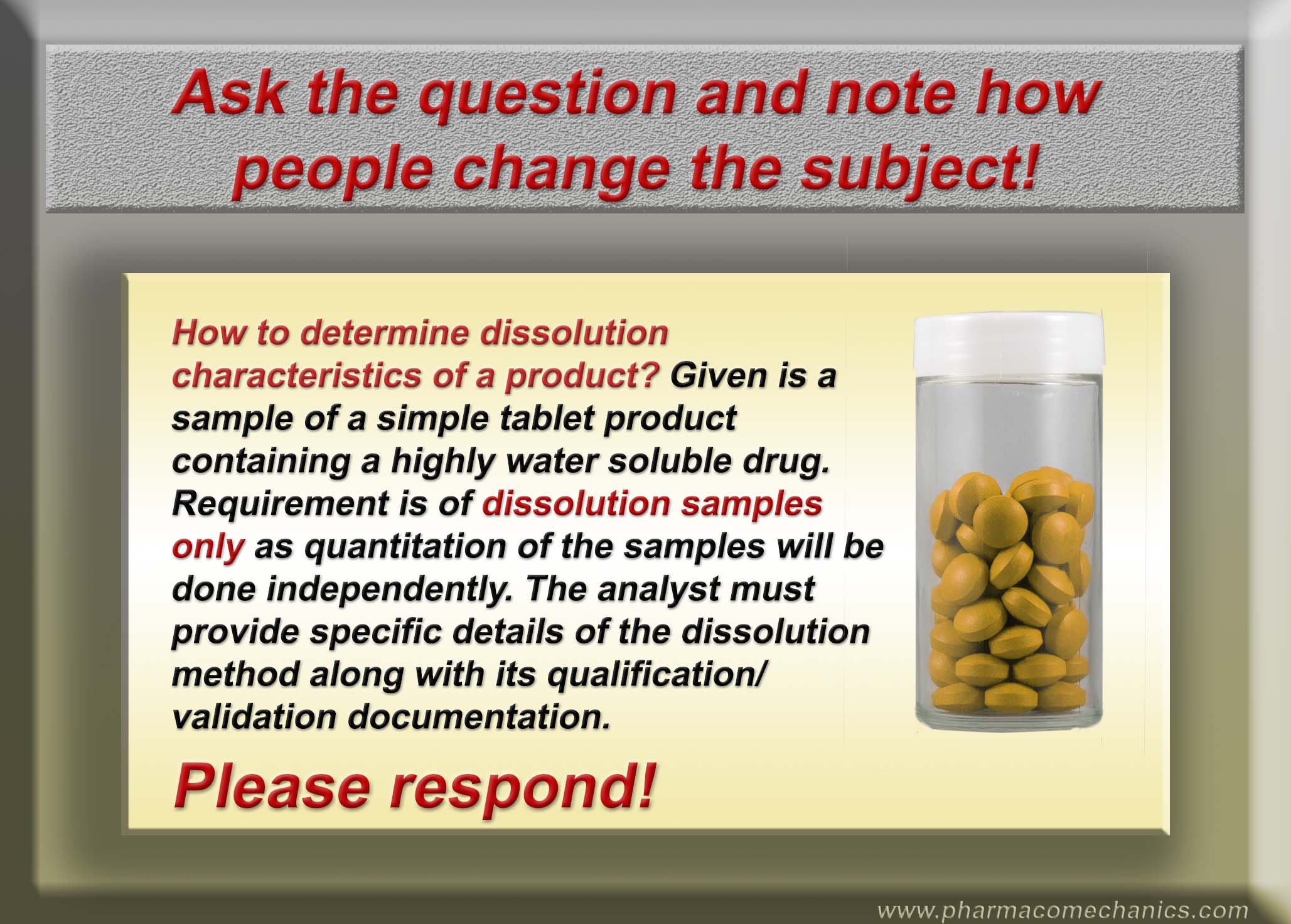
Drug dissolution testing is a well-established analytical technique or test and is extensively employed for the development and assessment of pharmaceutical products, in particular, tablets and capsules. It would not be an exaggeration to say that it is the only test used to establish the quality of products. However, the tests and testers have never been qualified and validated for their intended purpose. Therefore, tests and testers cannot provide relevant and scientifically valid results regarding the quality of the tested products. This is simply common sense and scientific fact.
Some, however, still promote the current practices through training (conferences, seminars, and write-ups) as scientific and useful, which are not only causing delays and hindrances in addressing the issues at hand. This also creates false hope for analysts/scientists that this technique may provide useful and relevant results. Sometimes this training and advice are disguised with different fanciful names or topics such as clinical or bio-relevant, IVIVC, and bioavailability/bioequivalence assessment. Still, underneath it, all are flawed dissolution results. It is impossible to obtain reproducible and relevant dissolution results for any product using the currently suggested dissolution testers.
A simple and practical approach one could use to assess the credibility or authenticity of promoted claims and expertise is to request if the person (trainer or vendor’s representative) can determine dissolution characteristics of a given blinded sample of a product containing a highly soluble drug using an independently developed and validated method (see below). If yes, it could certainly be a good source for learning. Otherwise, one should use caution.
Please use caution and pay attention (link)
